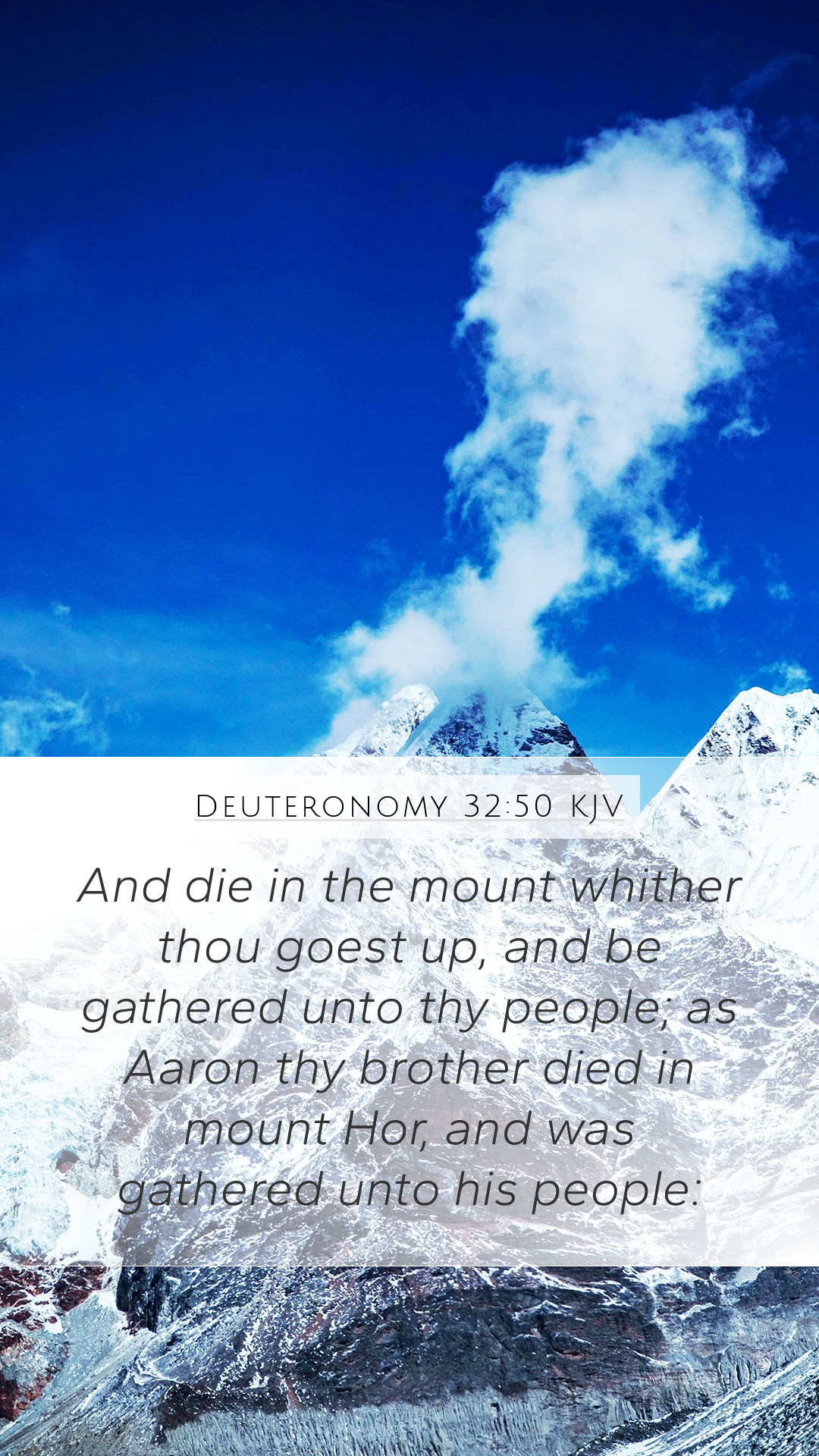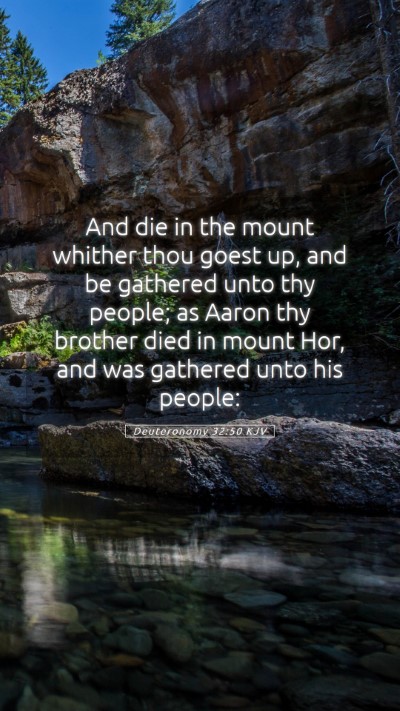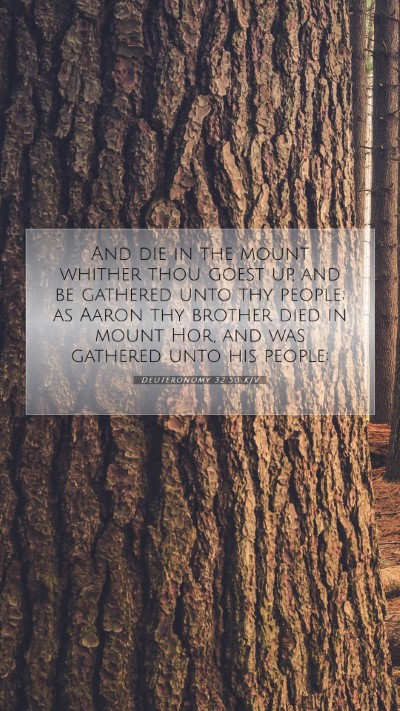Understanding Deuteronomy 32:50: Insights and Commentaries
In Deuteronomy 32:50, the verse states, "And die in the mount whither thou goest up, and be gathered unto thy people; as Aaron thy brother died in mount Hor, and was gathered unto his people." This passage refers to God's instruction to Moses regarding his impending death and serves as a poignant reminder of mortality and the culmination of one's earthly journey.
Summary of Biblical Commentary
The following insights are drawn from various public domain commentaries, including those by Matthew Henry, Albert Barnes, and Adam Clarke. These perspectives collectively enhance our bible verse understanding and interpretation.
Insights from Matthew Henry
-
Moses' Fate: Henry emphasizes that God's decree regarding Moses' death was inevitable and tied to the consequences of disobedience. The death of Moses was a solemn moment, marking the end of an era for the Israelites as they prepared to enter the Promised Land.
-
Gathered Unto His People: This phrase signifies the continuity of the covenant relationship and communal identity among God's people, suggesting a form of celestial union post-mortem.
-
Moral Lessons: Henry points to the need for obedience and faithfulness, warning readers about the gravity of sin and the importance of adhering to God's commands.
Insights from Albert Barnes
-
Location of Death: Barnes notes that the specific mountain signifies a divinely appointed place for Moses' departure. It illustrates the belief that God controls the locations and circumstances of human life and death.
-
Comparison to Aaron: The comparison with Aaron serves to remind the Israelites of their leaders’ fate, emphasizing that no one, not even the great Moses, is exempt from divine judgment and mortality.
-
Spiritual Implications: Barnes highlights the spiritual significance of being "gathered unto" one's people, indicating a restoration of unity and belonging beyond earthly existence.
Insights from Adam Clarke
-
Divine Sovereignty: Clarke underscores God's control over life and death, reinforcing the idea that Moses' death was part of God’s sovereign plan.
-
Reflective of Life's Journey: Clarke draws attention to the idea that every person has a destiny marked out by God, and Moses’ journey encapsulates a model of faithful leadership and the importance of aligning one's life with divine purpose.
-
Transition to the Promised Land: Clarke comments that Moses' death is emblematic of transition, not ending, signaling that God's promises continue beyond physical existence.
Application to Daily Life
The themes in Deuteronomy 32:50 resonate on multiple levels for contemporary believers. It calls for self-reflection on one's path in life, obedience to God's directives, and the assurance of eternal life beyond this earthly realm. Such bible study insights inspire individuals to consider their actions and the broader implications of living a life aligned with God's will.
Cross References
- Numbers 20:12: Which discusses Moses' punishment for his disobedience.
- Hebrews 3:2-6: Contrasting Moses’ faithfulness with Christ.
- Deuteronomy 34:5-6: The account of Moses' death and burial.
Conclusion
In summary, Deuteronomy 32:50 encapsulates significant lessons regarding obedience, mortality, and faith. The commentaries of Henry, Barnes, and Clarke provide diverse yet complementary perspectives, contributing to a deeper bible verse interpretation that emphasizes the weight of spiritual leadership and the everlasting promise of God.
As you continue exploring the meanings of Bible verses, consider engaging with bible study groups or utilizing bible study tools for deeper analysis and discussions.


